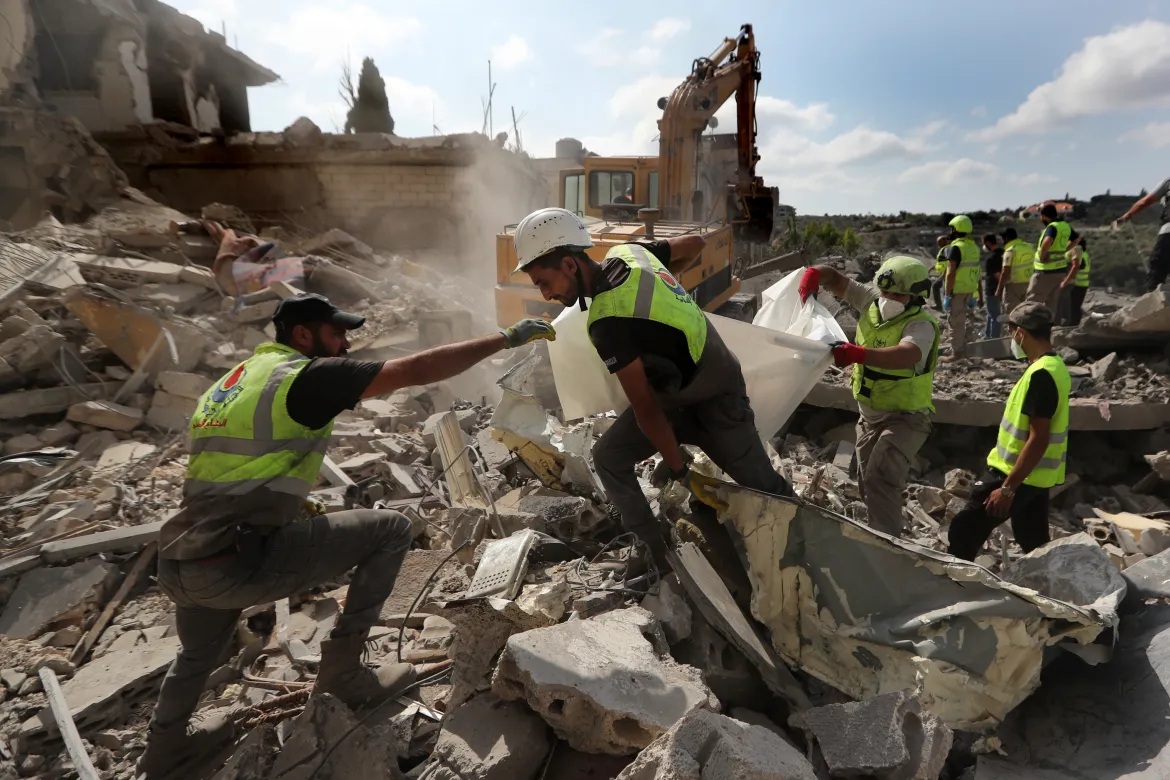The fragile calm along the Israel-Lebanon border was shattered once again as Israeli air raids on southern Lebanon, on Friday, June 27, 2025, left at least one person dead and over a dozen injured, according to Lebanese authorities.
The renewed violence has escalated fears of a broader conflict, just months after a tenuous ceasefire was brokered between the two sides.
On Friday, Lebanon’s Health Ministry confirmed that a woman was killed, and 13 others wounded after an Israeli airstrike struck a residential apartment building in Nabatieh, a city in southern Lebanon.
In a separate incident, another seven people were reportedly injured in air raids on the city’s outskirts.
The Israeli military stated that the attacks were aimed at underground infrastructure belonging to Hezbollah, a powerful Lebanese armed group and political faction.
According to the Israeli army, the site targeted in the Belfort area of Nabatieh governorate had previously been decommissioned by Israeli forces.
But it was recently reactivated by Hezbollah, a move Israel says violates the November 2023 truce agreement.
“This site was being used for Hezbollah’s fire and defense operations,” the Israeli army said.
It accused the group of breaching the terms of the ceasefire by resuming activity at a location previously neutralized.
However, the narrative quickly became contested.
Following reports from Lebanese state media that the airstrike had hit a civilian apartment block, Israeli military spokesperson Avichay Adraee took to social media platform X to reject those claims.
According to Adraee, the explosion that caused damage to the civilian building and injured residents was not a direct hit from an Israeli drone but rather the result of a secondary detonation.
“The blast came from a Hezbollah rocket stored at the site,” Adraee stated.
“Hezbollah continues to store dangerous weapons in close proximity to civilian homes, recklessly endangering the lives of Lebanese citizens.”
His statement reflects a broader Israeli stance that Hezbollah’s tactics deliberately use civilian infrastructure as shields, increasing the risk to non-combatants during military operations.
But Lebanon’s leadership sees it differently.
President Joseph Aoun on Friday accused Israel of repeatedly violating the U.S.-mediated ceasefire by continuing aerial assaults on Lebanese soil.
He emphasized that such actions undermine the core terms of the agreement, which demand that both parties cease hostilities and withdraw any military presence from contested areas.
Under the terms of the ceasefire, southern Lebanon was to be cleared of armed factions and foreign military personnel.
On its part, Israel was to retreat from at least five military positions within Lebanese territory.
In addition, all forms of cross-border aggression were to come to an end.
Despite these stipulations, tensions have persisted in the border region.
Israeli aircraft have frequently targeted what they describe as Hezbollah-linked operatives and sites, even as Lebanese authorities insist many of these strikes affect civilians or fall dangerously close to populated areas.
Footage verified by Al Jazeera’s Sanad fact-checking team shows smoke rising dramatically from the targeted hilltop as the sound of Israeli jets echoes overhead, a stark reminder that the ceasefire remains, at best, fragile.
Hezbollah has yet to issue a formal response to the latest strikes.
However, the group has historically portrayed Israeli incursions as violations of Lebanese sovereignty, often vowing retaliation.
Such exchanges, while relatively contained in recent months, raise concerns about the potential for miscalculations that could trigger a wider escalation.
For civilians in southern Lebanon, the sense of unease is growing.
Many residents have already endured years of conflict and displacement, and renewed violence threatens to unravel what little stability the region has managed to regain.
The international community has called repeatedly for both sides to exercise restraint.
However, as this latest episode shows, the ceasefire agreement remains vulnerable to disruption.
With both sides trading blame and no clear path to de-escalation in sight, the risk of a full-blown conflict remains dangerously close.
As diplomatic efforts struggle to hold, the people of southern Lebanon once again find themselves caught in the crossfire.
They find their lives suspended between fragile peace and looming war.







